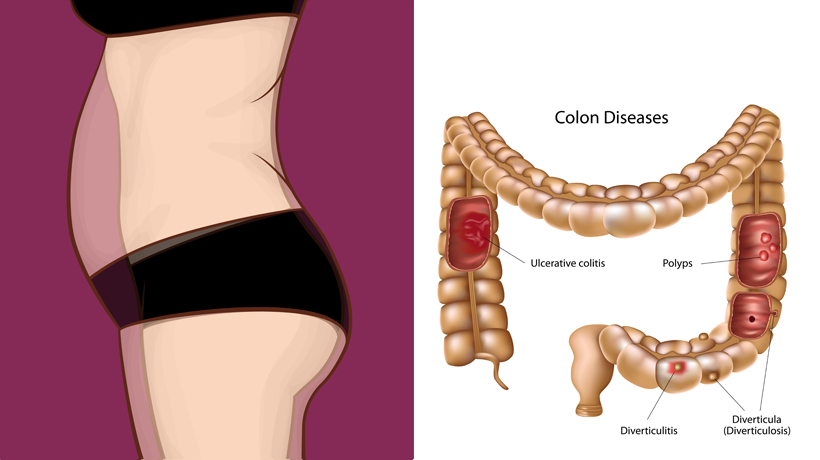Most of the time, bloating is uncomfortable but harmless. Chewing gum, menstruation, or an unbalanced diet might cause stomach swelling, and it’s usually only temporary (though there are some natural ways to banish belly bloat if you’re hoping for it to disappear faster).
Other times, bloating may be one of the initial symptoms of a more serious health condition. Experts call some of these conditions “silent killers” because bloating, along with some of their other symptoms, seem so common that women don’t think much of it.
If you feel bloating accompanied by other unusual symptoms, or if the bloating lasts longer than usual, it might indicate one of the following conditions. In many cases, the only way to determine what’s causing that belly bloat is to visit a doctor.
Cancer
There are several organs located in the abdominal area. When one of them develops cancer, a woman might experience abdominal swelling. These include ovarian, uterine, pancreatic, colon, and stomach cancers, according to the American Academy of Family Physicians.
Liver disease
Infections from the hepatitis B virus or the hepatitis C virus usually don’t show symptoms until the virus damages the liver enough to cause signs and symptoms, according to the health resource website the Mayo Clinic. Abdominal swelling may also indicate liver cancer.
Inflammatory bowel disease
Inflammatory bowel disease (IBD) actually refers to two diseases: Crohn’s disease and ulcerative colitis. Ulcerative colitis affects only the large intestine (also known as the colon) while Crohn’s disease can affect any part of the gastrointestinal tract, from the mouth to the anus. Usually, IBD affects the small and large intestines, causing diarrhea, abdominal pain, and bloating, according to the IBD Clinic in Alberta, Canada.
Diverticulitis
Diverticula are pouches that bulge outward through the colon and having these pouches is called diverticulosis. Half of all people over age 60 have it, says the U.S. National Library of Medicine. The main cause is a diet low in fiber. When the pouches become inflamed or infected, the condition is called diverticulitis. Bloating, abdominal pain (usually on the left side), fever, vomiting, chills, and constipation can signal diverticulitis. About 25 percent of people with diverticulitis develop complications, including abscesses, colon blockage, fistulas, or ruptured pouches that spill intestinal contents in the abdominal cavity.
Urinary tract infection
The Milton S. Hershey Medical Center from Penn State University says women are more likely to have a urinary tract infection (UTI) than men. When women reach menopause, the decrease in estrogen thins the lining of the urinary tract, which increases susceptibility to bacterial infections that cause UTIs. Antibiotics can treat UTIs, which can develop complications like bladder and kidney dysfunction.
Mental health
Problems with the organs near the belly may not be the only cause of bloating. The health resource website Medical News Today says bloating may also be a side effect of stress and anxiety. Staying mentally healthy is one important way to keep the body healthy.
Sources:
https://familydoctor.org/condition/bloating/
http://www.ibdclinic.ca/treatment/managing-bloating-wind/
https://www.health.harvard.edu/diseases-and-conditions/whats-causing-that-belly-bloat
https://www.mayoclinic.org/diseases-conditions/hepatitis-c/symptoms-causes/syc-20354278
https://www.womenworking.com/dealing-with-excruciating-stool-problems-5-signs-of-inflammatory-bowel-disease/
https://medlineplus.gov/diverticulosisanddiverticulitis.html
http://pennstatehershey.adam.com/content.aspx?productId=10&pid=10&gid=000036
https://www.medicalnewstoday.com/articles/321833.php



